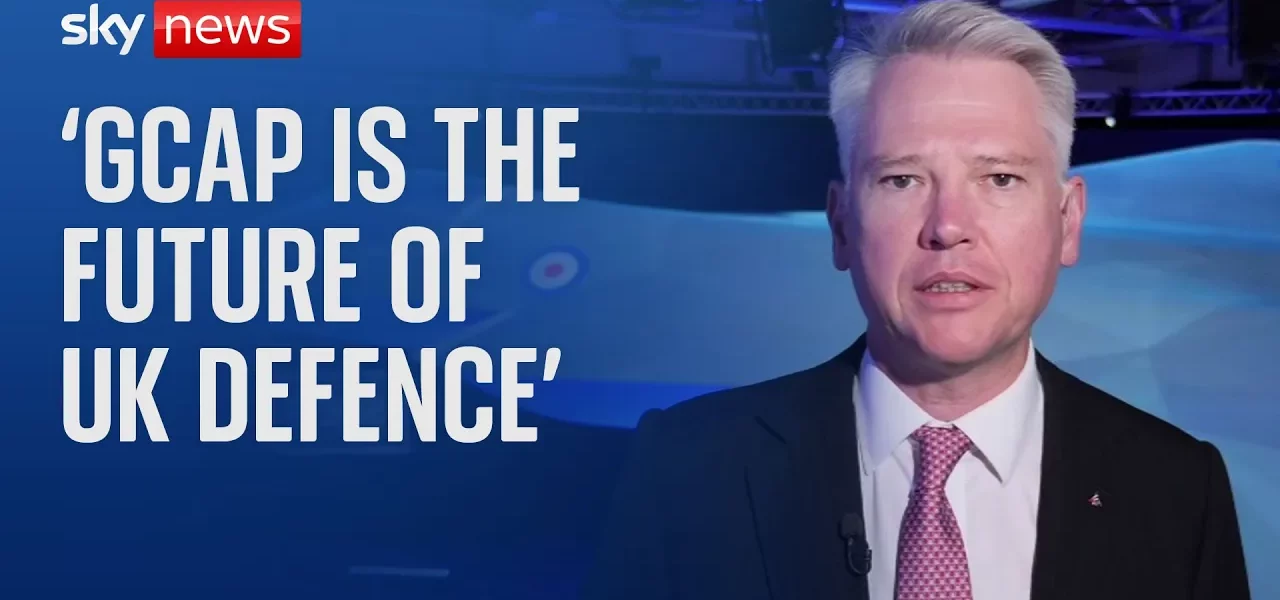Major Developments in the Global Combat Air Program Amid Political Changes

This article delves into the recent announcement by President Biden regarding his withdrawal from the presidential race and endorsement of Kamala Harris, its potential impacts on defense policies, and the unveiling of the latest concept for the Global Combat Air Program (GCAP) at Farm BR.
Introduction
The political landscape in the United States has shifted dramatically with President Biden’s unexpected decision to withdraw from the presidential race, endorsing Vice President Kamala Harris. This development raises questions about the future of defense policies in the U.S. and how it may affect international military collaborations, particularly the Global Combat Air Program (GCAP) in the UK. In this article, we will explore the implications of these changes and provide insights into the latest advancements in GCAP, which aims to modernize and enhance the United Kingdom’s military air capabilities.
Impact of Political Changes on Defense Policies
The recent announcement regarding President Biden’s withdrawal has sparked discussions among defense experts and analysts about its ramifications. Here are some key points to consider:
- Bipartisan Support for Defense: Historically, the U.S. has enjoyed broad bipartisan support for defense initiatives. Industry leaders anticipate that this support will continue, irrespective of political changes.
- Commitment to Partnerships: Companies involved in defense, such as Farm BR, emphasize their dedication to working with the democratically elected government, ensuring continuity in defense contracts and initiatives.
- Potential Changes in Focus: The endorsement of Kamala Harris may lead to shifts in strategic priorities, particularly regarding international defense collaborations.
Unveiling the Global Combat Air Program (GCAP)
Farm BR has recently unveiled the latest concept of the Global Combat Air Program (GCAP), marking a significant milestone in the evolution of military air capabilities. This section will explore the key features of the new design and its relevance to the UK’s defense strategy.
Design Enhancements
The latest GCAP design showcases several notable enhancements over its predecessor:
- Wing Design: The new wing profile has been optimized for better aerodynamics and performance.
- Aircraft Profile: Changes in the overall shape contribute to improved stealth capabilities and operational efficiency.
- Collaborative Development: The program has evolved through partnerships with allies, namely Japan and Italy, aiding in sharing costs and technological advancements.
Importance of GCAP to the UK Military
GCAP is not merely a project; it is vital for the UK’s military air capability, supporting over 50,000 high-quality jobs across the sector. The program represents the future of defense for the UK, and its successful implementation hinges on international collaboration.
Concerns Around Program Postponement
With ongoing speculation regarding potential postponements or cancellations of GCAP due to the upcoming defense review, there are critical considerations:
- Job Security: Delaying GCAP could jeopardize thousands of jobs in the military aviation sector.
- Increased Dependence: Should GCAP be postponed, the UK might have to rely more on alternative aircraft, like the F-35, which could limit operational flexibility and increase costs.
- Long-term Military Capability: The absence of a domestic combat air program could hinder the UK’s ability to independently manage its defense capabilities.
Conclusion
In conclusion, while the political landscape in the United States undergoes significant changes, the Global Combat Air Program remains a cornerstone of the UK’s military future. The successful unveiling of the new GCAP design highlights the importance of continued investment in defense technologies and international partnerships. As the UK prepares for its defense review, the need for a robust and independent military capability is more crucial than ever. Stakeholders are urged to support the ongoing development of GCAP to ensure the future of military air power in the United Kingdom.
For further insights into defense strategies and military collaborations, visit our related articles on the defense strategies page.
“`




